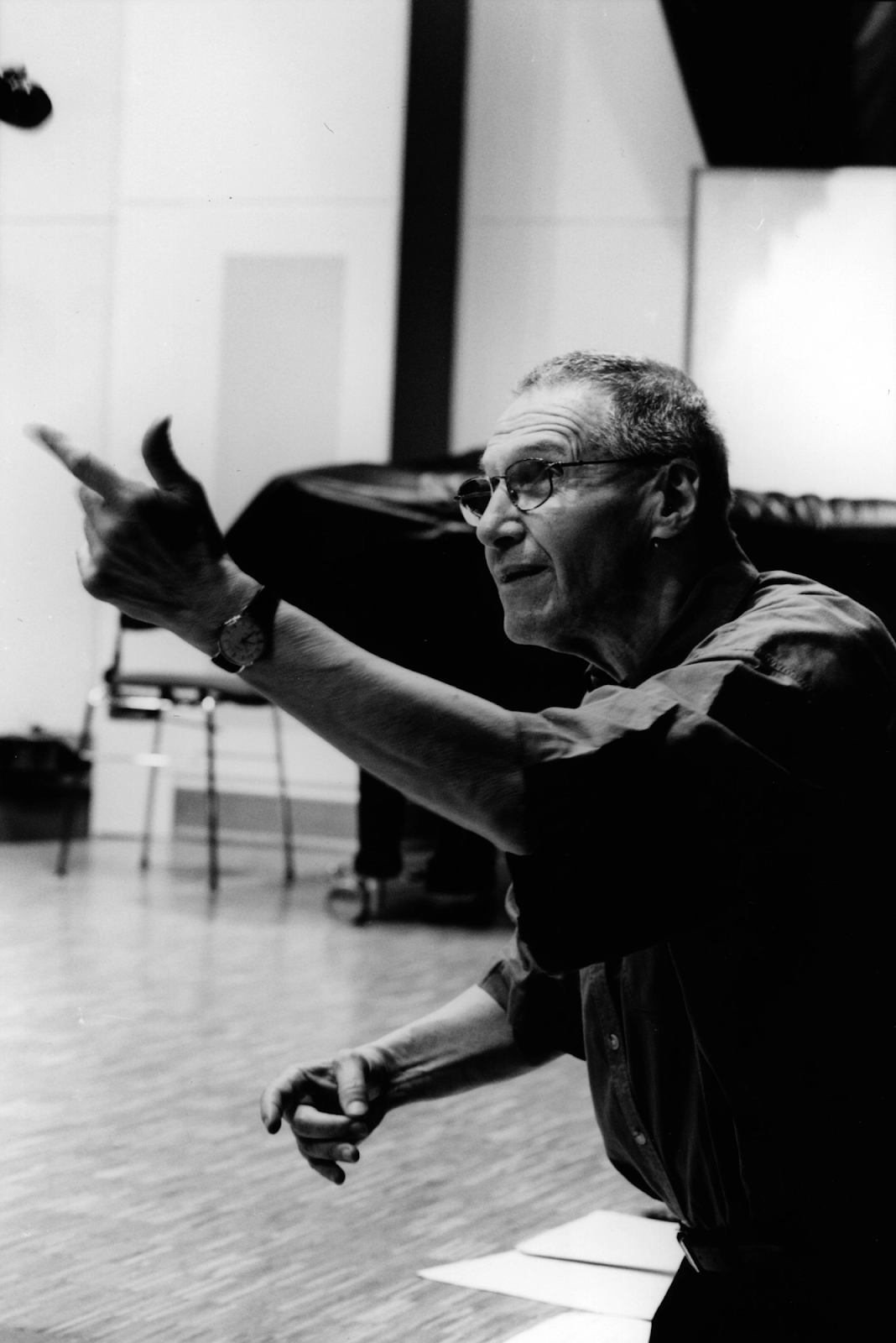The Center for 21st Century Music will welcome the stellar duo of soprano Susan Narucki and violinist Curtis Macomber to Slee Hall on Wednesday, March 27, at 7:30pm for a performance of György Kurtág's monumental Kafka Fragments.
György Kurtág (b. 1926) came of age during a time of political unrest in eastern Europe. Born in Romania to Hungarian parents, Kurtág spent much of his early life as a pianist and studying the limited number of scores available under Soviet rule. His earliest compositions aesthetically align with the works of Béla Bartók, Anton Webern, and Igor Stravinsky, though his style shifted drastically after living in Paris in 1957-58 and taking composition lessons with Olivier Messiaen, Darius Milhaud, and Max Deutsch. During this time, Kurtág experienced severe bouts of depression, compelling him to seek the guidance of art psychologist Marianne Stein, whom he cites as being the most influential figure of his time in Paris. Stein encouraged the composer to reimagine his work in smaller units, such as connections between individual notes, a limitation that reoriented his practice and characterized his later works.
Kurtág collected fragments of Kafka’s diary and personal correspondences, building a relationship with the author that was both intimate and imaginary. Kurtág does not attempt to channel Kafka in the work, but reorders Kafka’s language rendering a new text entirely. There is no singular and linear narrative, no overly developed theme or motif, but rather sets of juxtaposing moods and textures that take hold of the listener without revealing the next locale. Demanding maximum emotionality and expressivity of the performers, Kurtág work embodies Kafka’s personal vacillations between extremes as well as the volatility of the sociopolitical landscape the writer and composer shared. With folk tunes styled with minimalist aesthetics, Kafka Fragments evokes a distant historical place that swirls within the vortex of modernity, thereby evoking feelings of displacement, disorientation, and transience.
Susan Narucki, soprano
American soprano Susan Narucki has forged a unique path; her commitment to the music of our time has led to award-winning recordings, performances with musicians of the first rank and close collaborations with generations of composers. For over a decade, she has also been deeply engaged in commissioning, producing and performing chamber operas that illuminate critical issues in society, including the critically acclaimed Cuatro Corridos (2013), a bi-national collaboration addressing trafficking of women across the U.S. Mexican border. Performed throughout the United States and Mexico, the opera received major philanthropic support from the MAP Fund /Doris Duke Charitable Foundation, UC MEXUS, Creative Capital Foundation, New Music USA and NEA Artworks. Ms. Narucki's most recent recording, The Edge of Silence: Vocal Chamber Music of György Kurtág (AVIE Records) was nominated for a 2019 Grammy for Best Classical Vocal Recording. The recording was included in the New York Times Best Classical Tracks of 2019 and was named a Critic’s Choice of Opera News.
A dedicated mentor to the next generation of singers, Ms. Narucki's recent residencies include the Shanghai Conservatory, Longy School of Music and Oberlin Conservatory. She serves as Distinguished Professor of Music at the University of California, San Diego.
For more information about Ms. Narucki, visit her website.
Curtis Macomber, violin
The playing of violinist Curtis Macomber was praised recently by The New York Times for its “thrilling virtuosity” and by Strad Magazine for its “panache". He enjoys a varied and distinguished career as soloist, chamber musician, and teacher, and he has for several decades been recognized as one of this country’s foremost interpreters and proponents of contemporary music. Mr. Macomber's extensive discography includes the complete Brahms and Grieg Sonatas; violin concertos by Martin Boykan and Laura Schwendinger; and hundreds of critically praised recordings of contemporary solo and chamber works.His CD of Roger Sessions Solo Sonata was acclaimed by American Record Guide as “one of the best recordings of 20th-Century solo violin music ever made.”
Mr. Macomber is a founding member of the Apollo Piano Trio and a member of the Da Capo Chamber Players and the Manhattan String Quartet. Past memberships have included the Walden Chamber Players and the New York Chamber Soloists. He was for many years the violinist of Speculum Musicae and has also appeared with the New York New Music Ensemble, Group for Contemporary Music, and in chamber music series across the country and in Europe.





No comments:
Post a Comment
Note: Only a member of this blog may post a comment.